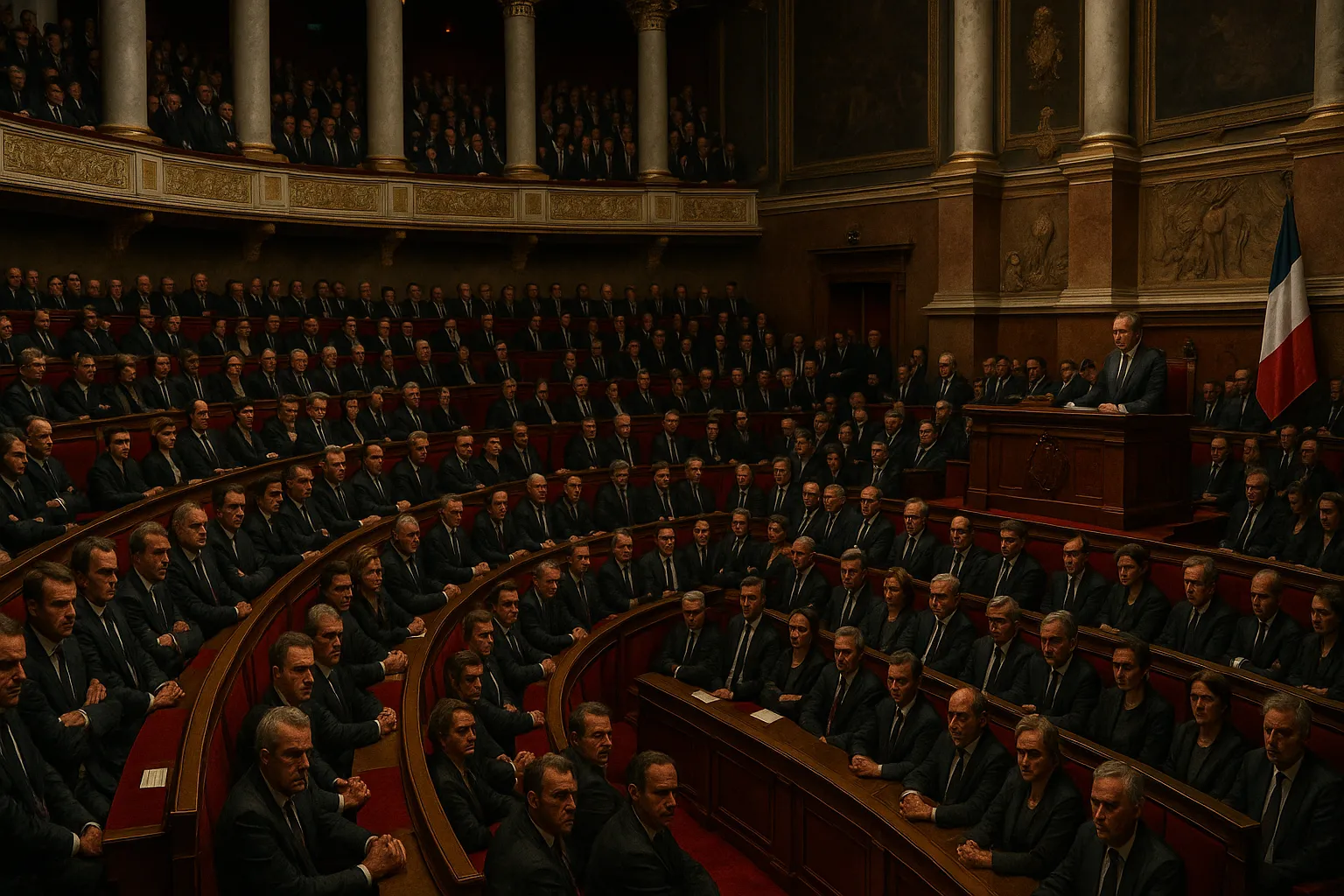French Government Collapses After No-Confidence Vote

PARIS, Sept. 9 (Reuters) - France’s minority government led by Prime Minister François Bayrou fell on Monday after lawmakers voted 364-194 to reject his austerity-driven budget, forcing his resignation and plunging the country into fresh political turmoil.
Nut Graf Bayrou’s downfall underscores deep divisions in the National Assembly over plans to cut €44 billion in spending to tame a public debt equivalent to 114 percent of GDP. The collapse hands President Emmanuel Macron the urgent task of naming a fifth prime minister in less than two years.
Key Details
- What happened? Parliament passed a no-confidence motion against Bayrou’s cabinet, defeating his proposal to reduce the budget deficit.
- Who’s involved? Centrist Prime Minister François Bayrou and President Emmanuel Macron. Opposition from both left-wing and far-right parties united against the plan.
- When? The vote took place Monday, Sept. 8, and Bayrou will formally resign on Tuesday, Sept. 9.
- Where? Assemblée Nationale, Paris.
- Why? Lawmakers objected to deep cuts to public services and social programs amid soaring debt and a fragmented legislature lacking any clear majority.
Political Fallout
- President Macron must appoint a new prime minister “in the coming days,” with options ranging from another centrist ally to a technocrat or a moderate socialist.
- Both Marine Le Pen (far right) and Jean-Luc Mélenchon (far left) have called for snap elections, but Macron has resisted dissolving the National Assembly.
- A caretaker government will handle routine duties until a successor is named, as required by the constitution.
Budgetary and Economic Implications
Lawmakers had balked at Bayrou’s plan to slash €44 billion by 2026, including cutting two public holidays and trimming welfare benefits. France’s deficit stood at 5.8 percent of GDP in 2023-nearly double the EU ceiling-and debt servicing costs are the highest in the eurozone outside Greece.
What’s Next?
- New Prime Minister: Macron’s choice faces the same hurdle of securing support in a deeply divided parliament.
- Potential Snap Election: If gridlock persists, Macron could dissolve the Assembly, triggering elections within 20-40 days.
- Market Watch: Fitch, Moody’s and S&P reviews are due this autumn, and any sovereign downgrade could raise France’s borrowing costs.
-Ends-
Categories
Autos and vehicles Beauty and fashion Business and finance Climate Entertainment Food and drink Games Health Hobbies and leisure Jobs and education Law and government Other Politics Science Shopping Sports Technology Travel and transportationRecent Posts
Tags
Archives
08/19/2025 (3) 08/20/2025 (40) 08/21/2025 (27) 08/22/2025 (22) 08/23/2025 (4) 08/24/2025 (21) 08/25/2025 (30) 08/26/2025 (24) 08/27/2025 (29) 08/28/2025 (16) 08/29/2025 (9) 08/30/2025 (13) 08/31/2025 (17) 09/01/2025 (167) 09/02/2025 (124) 09/03/2025 (149) 09/04/2025 (112) 09/05/2025 (72) 09/06/2025 (169) 09/07/2025 (162) 09/08/2025 (150) 09/09/2025 (176) 09/10/2025 (194) 09/11/2025 (194) 09/12/2025 (186) 09/13/2025 (207) 09/14/2025 (159) 09/15/2025 (175) 09/16/2025 (198) 09/17/2025 (196) 09/18/2025 (196) 09/19/2025 (207) 09/20/2025 (129) 09/21/2025 (4)